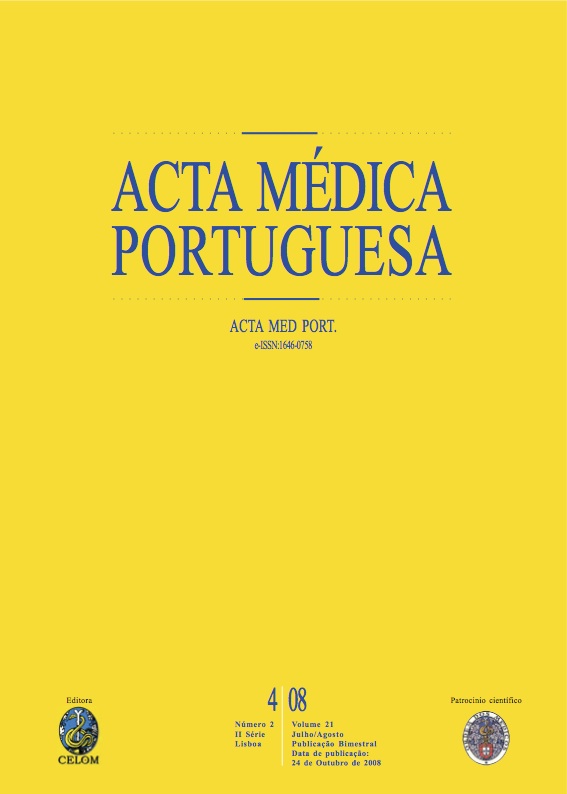Síndrome neurológico agudo pós-malária.
DOI:
https://doi.org/10.20344/amp.790Resumo
The neurologic symptoms in malaria are usually associated with a severe infection by Plasmodium falciparum. Less frequently, the presence of impaired consciousness, seizures and visual and auditory deficits is related with hypoglycemia (by malaria or quinine) or with the toxicity of anti-malarial drugs. In the last years, it was recognized a rare neurologic complication after the efficient treatment of Plasmodium falciparum malaria - post-malaria neurologic syndrome (PMNS). PMNS occurs days to weeks after the parasite clearance, presenting as an encephalopathy of variable severity. The pathogenic mechanisms involved in PMNS are not well understood, being admitted a possible immunological cause. We describe a case of a 61-year-old man presenting with a severe encephalopathy (delirium, cerebellar ataxia and ophthalmoparesis ), 2 days after complete recovery from Plasmodium falciparum malaria. Peripheral blood smears were repeatedly negative for malaria parasites. MRI during acute phase showed extensive multifocal white matter abnormalities. He was treated with high-dose methylprednisolone with complete resolution of neurological deficits. After 9 months the MRI showed minimal residual lesions.Downloads
Downloads
Como Citar
Edição
Secção
Licença
Todos os artigos publicados na AMP são de acesso aberto e cumprem os requisitos das agências de financiamento ou instituições académicas. Relativamente à utilização por terceiros a AMP rege-se pelos termos da licença Creative Commons ‘Atribuição – Uso Não-Comercial – (CC-BY-NC)’.
É da responsabilidade do autor obter permissão para reproduzir figuras, tabelas, etc., de outras publicações. Após a aceitação de um artigo, os autores serão convidados a preencher uma “Declaração de Responsabilidade Autoral e Partilha de Direitos de Autor “(http://www.actamedicaportuguesa.com/info/AMP-NormasPublicacao.pdf) e a “Declaração de Potenciais Conflitos de Interesse” (http://www.icmje.org/conflicts-of-interest) do ICMJE. Será enviado um e-mail ao autor correspondente, confirmando a receção do manuscrito.
Após a publicação, os autores ficam autorizados a disponibilizar os seus artigos em repositórios das suas instituições de origem, desde que mencionem sempre onde foram publicados e de acordo com a licença Creative Commons









